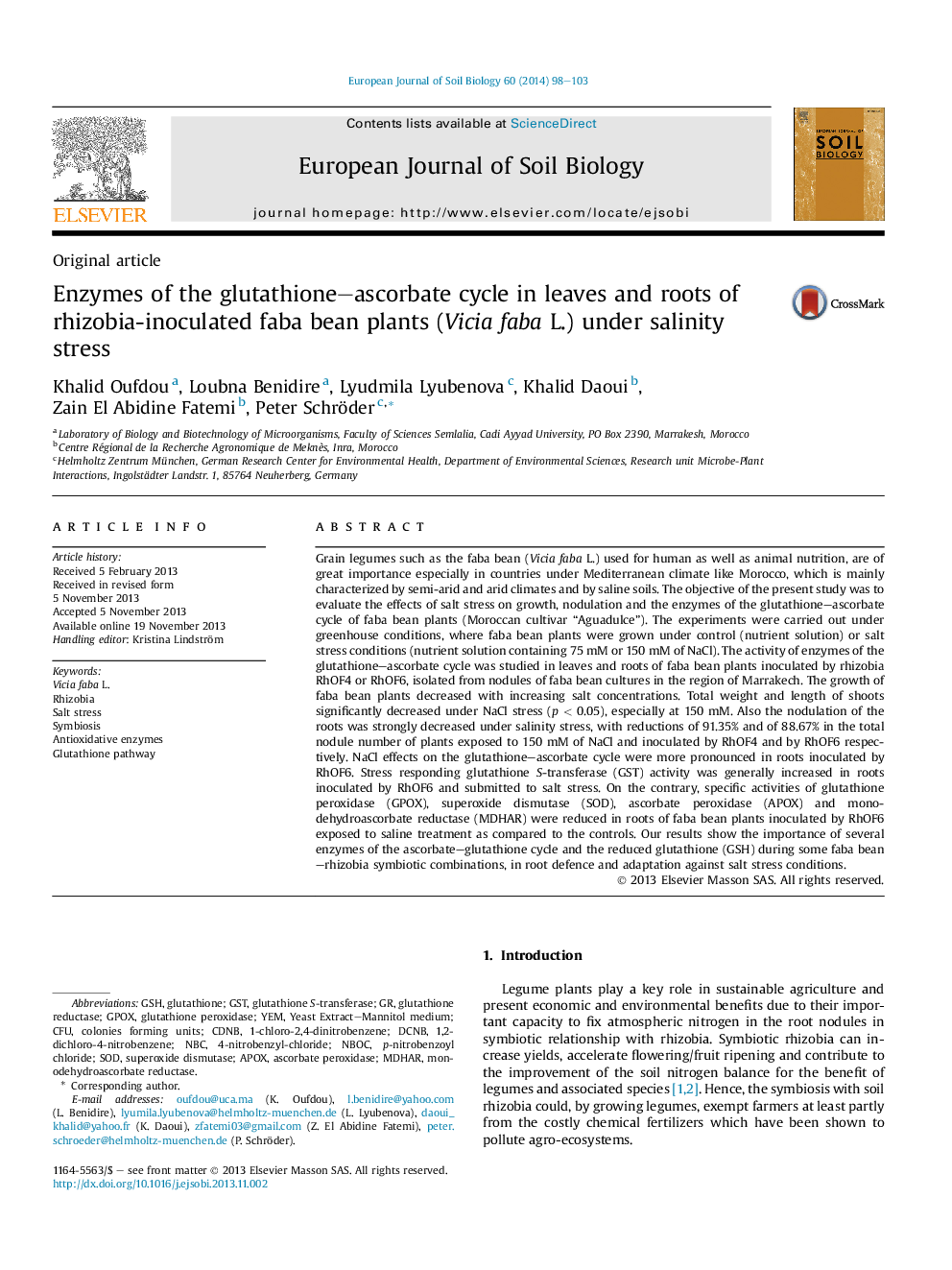| کد مقاله | کد نشریه | سال انتشار | مقاله انگلیسی | نسخه تمام متن |
|---|---|---|---|---|
| 4391907 | 1618132 | 2014 | 6 صفحه PDF | دانلود رایگان |

• Faba bean plants under salt stress are less nodulated than plants in normal soil.
• NaCl effects the GSH–ascorbate cycle more strongly in roots inoculated by RhOF6.
• The ascorbate–GSH cycle is important in faba bean-rhizobia symbiotic combinations.
• The antioxidative system provides defence and adaptation against salt stress.
Grain legumes such as the faba bean (Vicia faba L.) used for human as well as animal nutrition, are of great importance especially in countries under Mediterranean climate like Morocco, which is mainly characterized by semi-arid and arid climates and by saline soils. The objective of the present study was to evaluate the effects of salt stress on growth, nodulation and the enzymes of the glutathione–ascorbate cycle of faba bean plants (Moroccan cultivar “Aguadulce”). The experiments were carried out under greenhouse conditions, where faba bean plants were grown under control (nutrient solution) or salt stress conditions (nutrient solution containing 75 mM or 150 mM of NaCl). The activity of enzymes of the glutathione–ascorbate cycle was studied in leaves and roots of faba bean plants inoculated by rhizobia RhOF4 or RhOF6, isolated from nodules of faba bean cultures in the region of Marrakech. The growth of faba bean plants decreased with increasing salt concentrations. Total weight and length of shoots significantly decreased under NaCl stress (p < 0.05), especially at 150 mM. Also the nodulation of the roots was strongly decreased under salinity stress, with reductions of 91.35% and of 88.67% in the total nodule number of plants exposed to 150 mM of NaCl and inoculated by RhOF4 and by RhOF6 respectively. NaCl effects on the glutathione–ascorbate cycle were more pronounced in roots inoculated by RhOF6. Stress responding glutathione S-transferase (GST) activity was generally increased in roots inoculated by RhOF6 and submitted to salt stress. On the contrary, specific activities of glutathione peroxidase (GPOX), superoxide dismutase (SOD), ascorbate peroxidase (APOX) and monodehydroascorbate reductase (MDHAR) were reduced in roots of faba bean plants inoculated by RhOF6 exposed to saline treatment as compared to the controls. Our results show the importance of several enzymes of the ascorbate–glutathione cycle and the reduced glutathione (GSH) during some faba bean–rhizobia symbiotic combinations, in root defence and adaptation against salt stress conditions.
Journal: European Journal of Soil Biology - Volume 60, January–February 2014, Pages 98–103